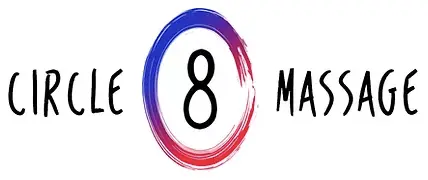Updated 15/10/2023
Tightened muscles are something that all of us, at some point have experienced.
At best they can be annoying, frustrating or distracting. At their worst however they can have a much more serious impact on our quality of life, fitness levels and mental health.
At Circle8 Massage Leeds, we know how to manage and prevent tight muscles, to help our clients to perform at their best, whether that is in the world of sport, in the office or simply going about their daily lives in the ways they wish.
So, what are the contributing factors to muscle tightness?
There are two very good reasons why muscle tightness is an issue experienced by so many of us, those are their principle causes.
Physical exercise and paradoxically, restricted movement…
Restricted movement
Imagine a scenario where you are working at a desk or from home for prolonged periods. This can have a profound effect for certain muscle groups. The hips for example will be in a flexed or bent position, the muscles on the front of the hip (known as the hip flexors) will almost always be in a shortened position.
The glutes however (the muscles on the back of the hip) will be in a constantly lengthened state. Then there are the pectoral (chest) muscles; they will be shortened, while the upper back muscles (or rhomboids) will be in the opposite state as you reach forward to work.
Over time, muscle imbalance is inevitable in cases like this, the muscles constantly lengthened will grow weak; the muscles that are constantly shortened like the flexors and rhomboids will become tight.
Practicing good posture, regularly stretching tightened muscles and deep tissue massage are all important factors for those whose jobs or lifestyles involve sitting for prolonged periods.
Physical exercise
For those of us who enjoy physical exercise, muscle tightness can be much more than a mere annoyance. It can affect performance, prevent us doing the things we love and even have an impact on our social lives and mental health.
Cramps for example are an all too familiar and unpleasant aspect of working out. These contractions, caused by a shortening of the muscle fibers can be compounded by lack of hydration or simple muscle fatigue. Forcibly stretching the muscle in this state, without deep massage treatment can lead to torn fibers and serious injury.
Muscle tightness can however, be a natural, unavoidable by-product of physical exercise itself. This is why it is important to gradually increase exercise intensity, especially for resistance work. Proper nutrition, hydration and stretching strategies can also help to alleviate muscle tightness.
Sports massage can and should be an important factor in every exercise program. At Circle8 Sports Massage, Leeds we work closely with every individual client to help them maximise the progress they make towards their fitness goals.
That includes not just treating muscle tightness but helping to alleviate the risk through pre and post workout deep tissue massage and a wide range of other help, advice and support as we learn more about you and your goals.
If you would like to learn more about the many ways in which deep massage can help you avoid muscle tightness and injury, get in touch.
Our team at Circle8 Massage, Leeds would love to hear from you.
FAQs
Can muscle tightness lead to injuries?
Yes, chronic muscle tightness can increase the risk of injuries, as tight muscles are more prone to strains and tears.
How can I relieve muscle tightness at home?
You can try self-massage, stretching exercises, or using a foam roller to alleviate muscle tightness at home.
When should I seek medical attention for muscle tightness?
If muscle tightness is severe, persistent, or accompanied by other concerning symptoms, it’s advisable to consult a healthcare professional for a thorough evaluation.
Are there any natural remedies for muscle tightness?
Yes, natural remedies like Epsom salt baths, herbal supplements, and essential oils can be beneficial in relieving muscle tightness.
Can muscle tightness be a sign of an underlying medical condition?
In some cases, yes. Muscle tightness can be a symptom of medical conditions like fibromyalgia, multiple sclerosis, or muscle disorders.
Is it essential to consult a fitness trainer for preventing muscle tightness?
While it’s not mandatory, consulting a fitness trainer can be beneficial to design an exercise program that minimises the risk of muscle tightness.







